Last updated on
Do you have a few old light bulbs to dispose of? Care to know the right way to do that? Here’s how to dispose and recycle each type of bulb.
We all have light bulbs that die on us now and then. We have to replace them all the time. And then, what do you do with the light bulbs you remove? You may not always be able to simply throw them in the trash – some bulbs pose a hazard to the environment because they contain dangerous chemicals or hazardous containers.
Knowing what to do with them is important. First of all, to keep your family and the environment safe. Secondly, in most areas, there’s a fine for mistreating hazardous waste.
In a nutshell, here’s what you can do:
Throw these to the bin:
- LED bulbs
- Halogen bulbs
- Incandescent bulbs
But make sure you secure the bulbs in a container to avoid breakage or injury.
Take these to the recycling center:
- Fluorescent tubes
- CFLs and CFBs
They contain dangerous chemicals and are classified as hazardous waste.
However, that’s not all! If you’re interested to know what you can do with your old light bulbs (by any type), and where to take them, read on.
Types of Light Bulbs
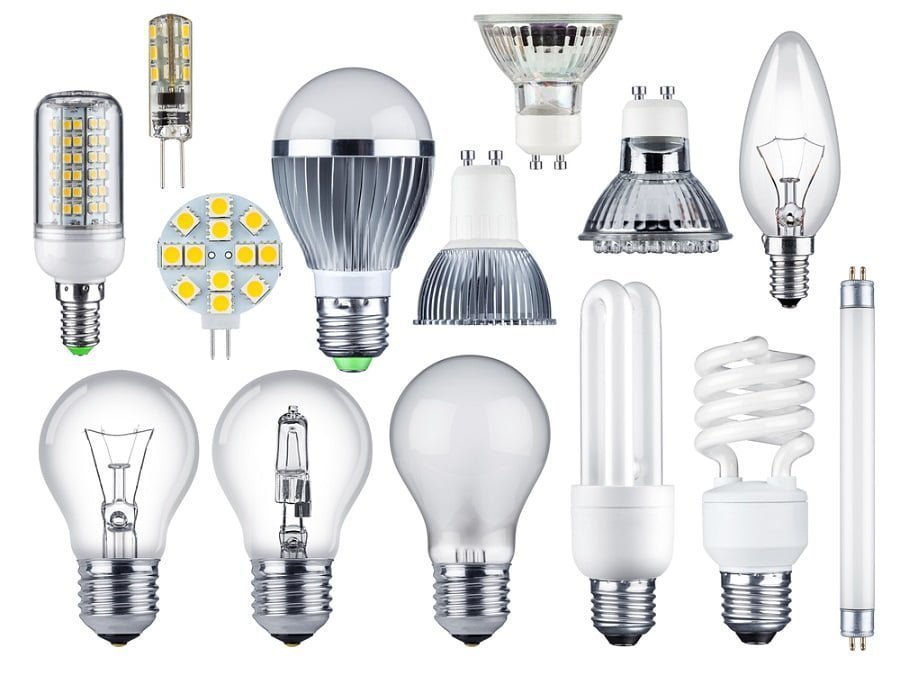
Different kinds of light bulbs have become more common in most households. The proliferation of bulbs for home, business, landscaping, outdoor lighting, and electrical devices raises questions about how to dispose of them safely.
The most popular types of bulbs that you will encounter sooner or later:
- Incandescent bulbs of all sizes and wattages.
- Halogen bulbs.
- CFL bulbs.
- LED bulbs.
- Fluorescent tubes, which are bulky and easily broken.
Incandescent bulbs remain the most popular, but that’s gradually changing as more people choose energy-efficient lighting options and their unique disposal requirements.
It’s important to know and consider the type of light bulb you’re dealing with in order to dispose of them properly.
How to Dispose of Light Bulbs
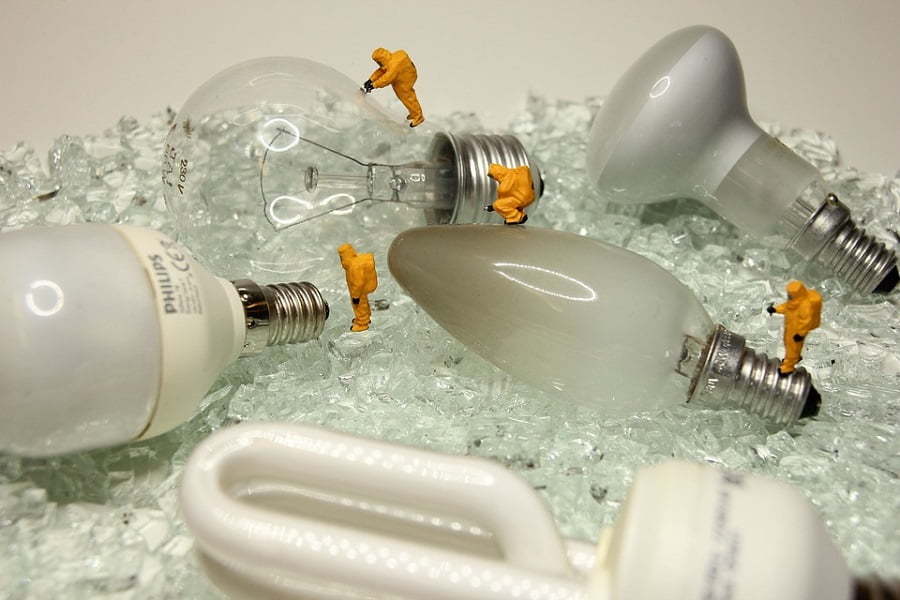
It’s important to know the proper way of disposing of light bulbs. Some carry a risk to the environment and the people involved in disposing of waste. Even your family could be affected while you wait to dispose of bulbs. Many bulbs carry toxic components that generate health risks.
How to Dispose of Fluorescent Tubes

Fluorescent tubes are considered both a safety risk and a source of hazardous waste. The tubes are often very long and fragile, and replacing a tube creates an extreme risk of breakage. Fluorescent tubes contain mercury, aluminum, and glass.
Mercury is toxic but valuable, and recycling centers reclaim salvageable materials from fluorescent tubes.
The tubes can be recycled or included in waste bound for universal waste handlers. You can also call 800-CLEAN-UP to find where to take fluorescent bulbs in your area.
Recycle Fluorescent Tubes
There are many centers and waste programs where you can take burned-out fluorescent bulbs. The store where you bought the tubes might offer a disposal service, and Batteries Plus Bulbs stores routinely recycle all kinds of bulbs. If you must store the bulbs for a time, be sure to find a safe place where they won’t get broken.
Some of the national chains that accept fluorescent bulbs or CFLs for recycling include:
- Home Depot
- Lowe’s
- Ace Hardware
- IKEA
- Orchard Supply
Recycle Light Bulbs
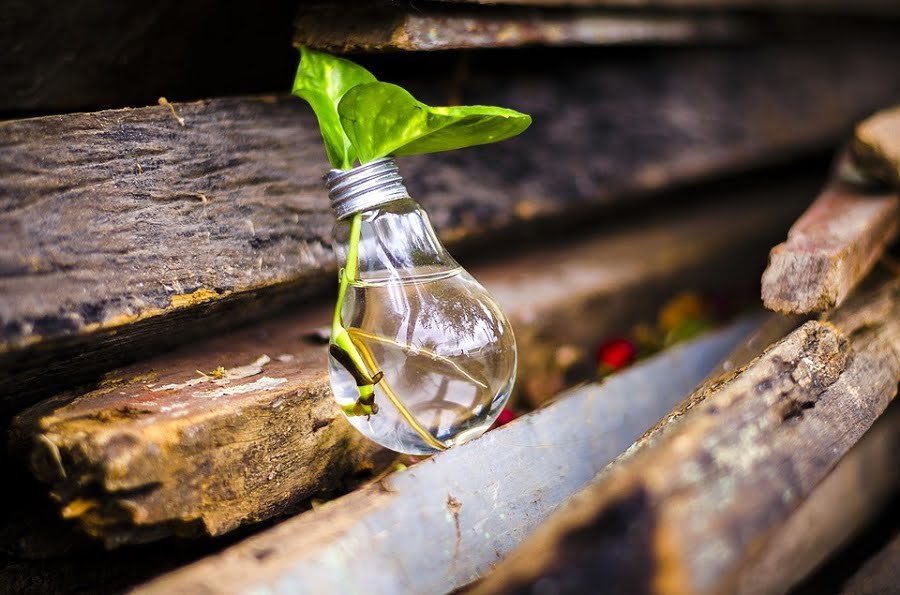
Just because it’s relatively safe to throw some light bulbs in the trash doesn’t mean you have to do so. Recycling any light bulb is a good practice for safety and environmental reasons. Some bulbs have to be disposed of properly, or you could be fined.
Check the light bulb disposal regulations in your state for specifics, but it’s generally safe to dispose of bulbs at recycling centers. Some centers take LED bulbs, and curbside recycling is safe for recycling halogen and LED bulbs.
Also, consider using your old light bulbs as a DIY craft. There are many ways to use simple bulbs as a craft item:
- Make mini vases
- Paint and embellish bulbs for decor
- Make terrariums
- Make oil lamps
- Use them as spice containers
- Turn them into Christmas tree ornaments
Where to Recycle Light Bulbs
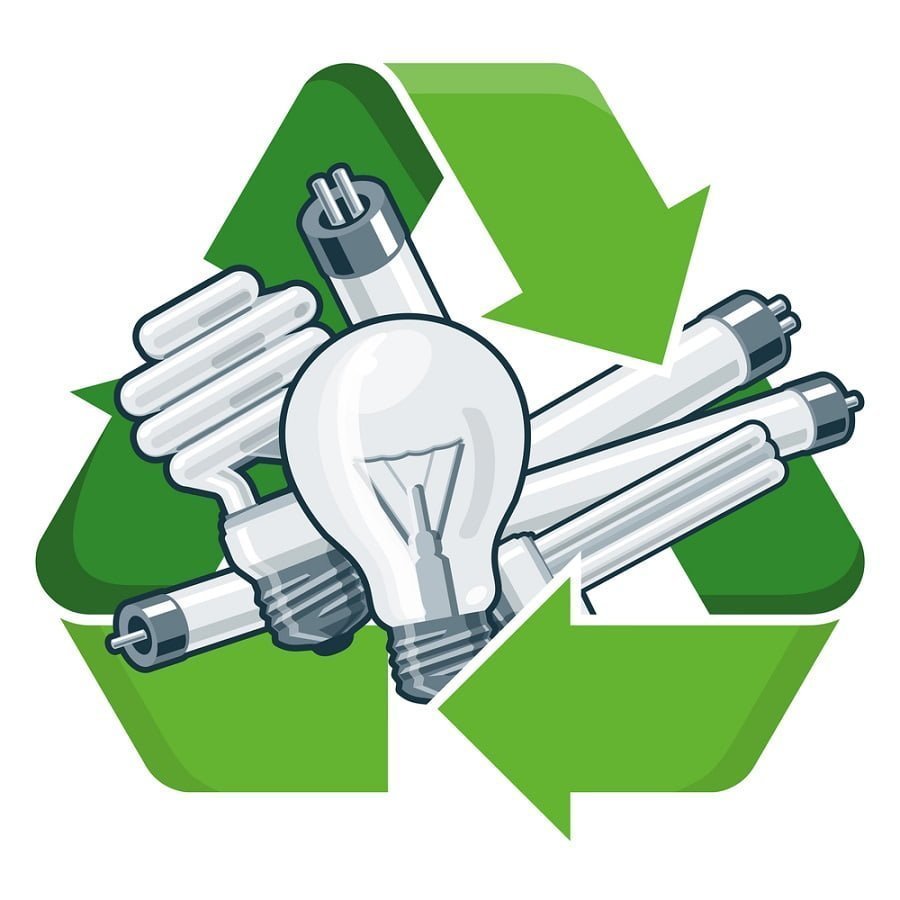
Your community might have recycling centers where you can drop off your bulbs. Many retailers also accept light bulb waste, especially those companies that sell lots of bulbs. Incandescent bulbs can’t be recycled, so you can safely throw them away in household trash.
CFLs, fluorescents, halogens, and LEDs can be recycled at most major recycling centers, retailers and malls. The latter option is convenient because you don’t have to make a special trip and can dispose of used bulbs while shopping.
How to Dispose of CFL Bulbs
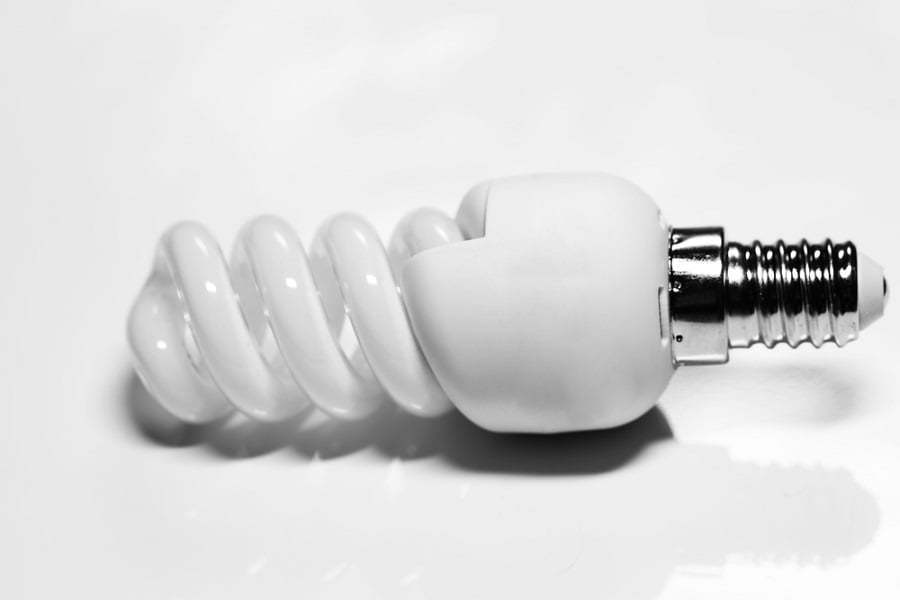
Compact fluorescent lighting bulbs often come in usual shapes and sizes, and they can be powered by internal or external ballasts. These should be disposed of just as carefully as fluorescent tubes and CFBs. You can call 800-CLEAN-UP to find a safe disposal site in your area.
How to Dispose of LED Bulbs
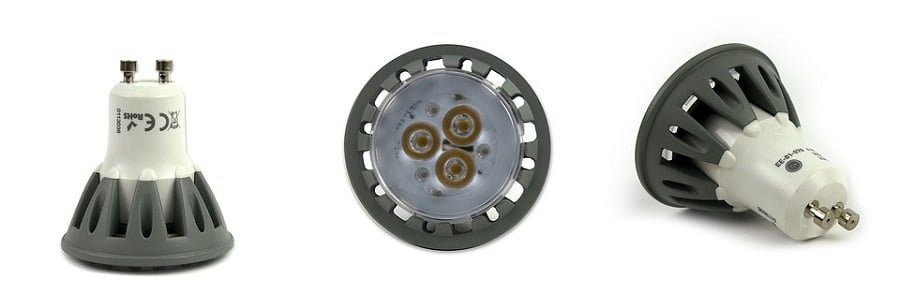
LED bulbs are the most energy-efficient lighting option, and you can expect to see the technology in more and more homes. Lighting and electrical systems are being upgraded regularly, and new homes often have fixtures that use these versatile and long-lasting bulbs.
You might not even need to dispose of these bulbs because they last between 35,000 and 50,000 hours, a lifetime for some families. However, these bulbs don’t present a disposal problem because they can be thrown in the trash or glass recycling bin.
There are no regulations regarding safe LED bulb disposal, but that could change as the lighting option becomes more popular. You can check locally to find out if there are any LED recycling centers or just include them with your glass recycling.
CFB Disposal
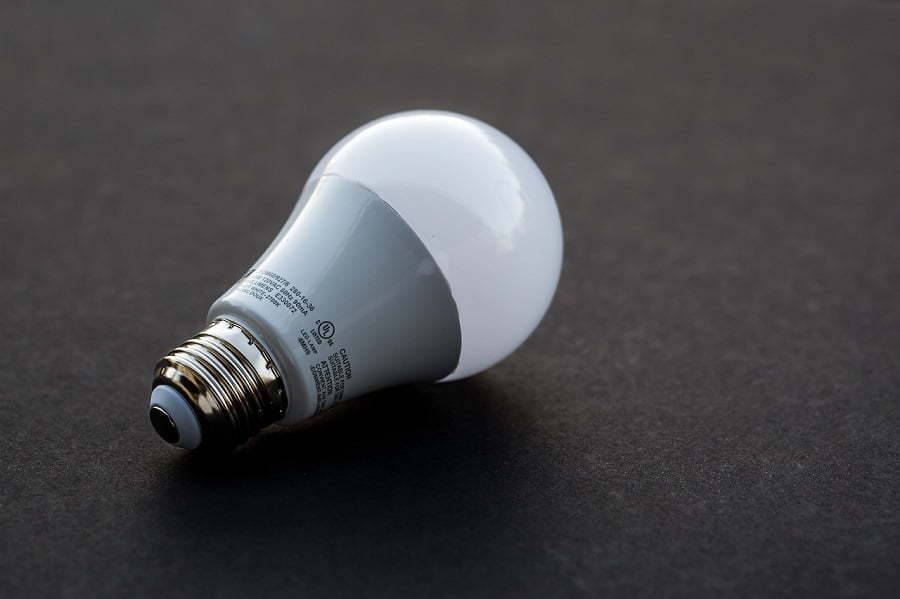
Compact fluorescent bulbs that can be used in regular incandescent fixtures are a popular lighting option because of their long-life and energy efficiency. However, you should take care when handling them because they contain mercury, a highly toxic substance
CFBs should be carefully segregated from other waste and kept until you make a run to a disposal site. Many of the places that sell these bulbs also run disposal and recycling programs. Call 800-CLEAN-UP to find a suitable disposal site in your area.
How to Dispose of Mercury Light Bulbs
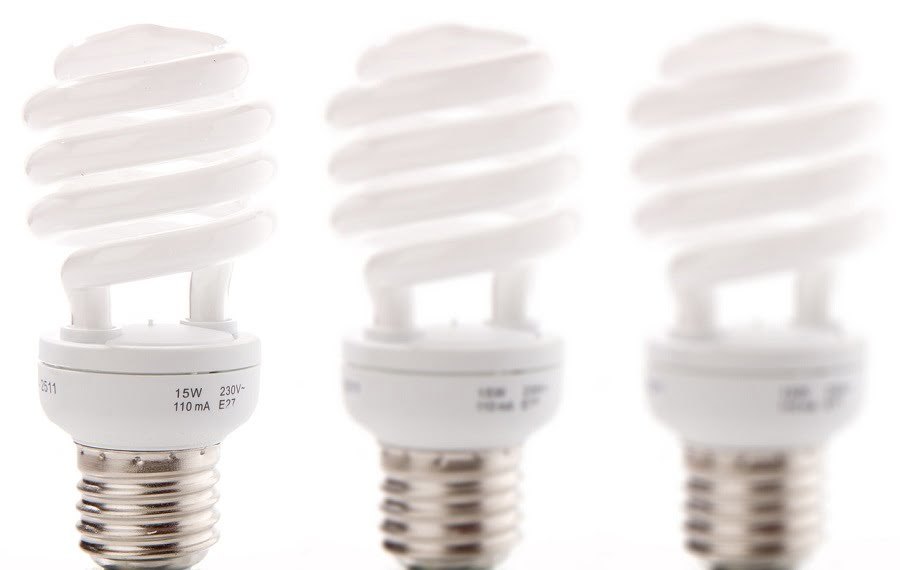
Mercury light bulbs include fluorescents, CFBs, and CFLs. None of these bulbs are safe to throw in the regular trash. You need to find a qualified recycler, merchant recycling program and merchant operated disposal program for mercury light bulbs.
Some national chains offer mercury bulb disposal services. These include The Home Depot, IKEA, Batteries Plus Bulbs, Ace Hardware, Lowe’s and many others. It’s critical to handle the used bulbs safely in transit and when storing them before making a trip to the nearest recycling company.
How to Dispose of Incandescent Light Bulbs
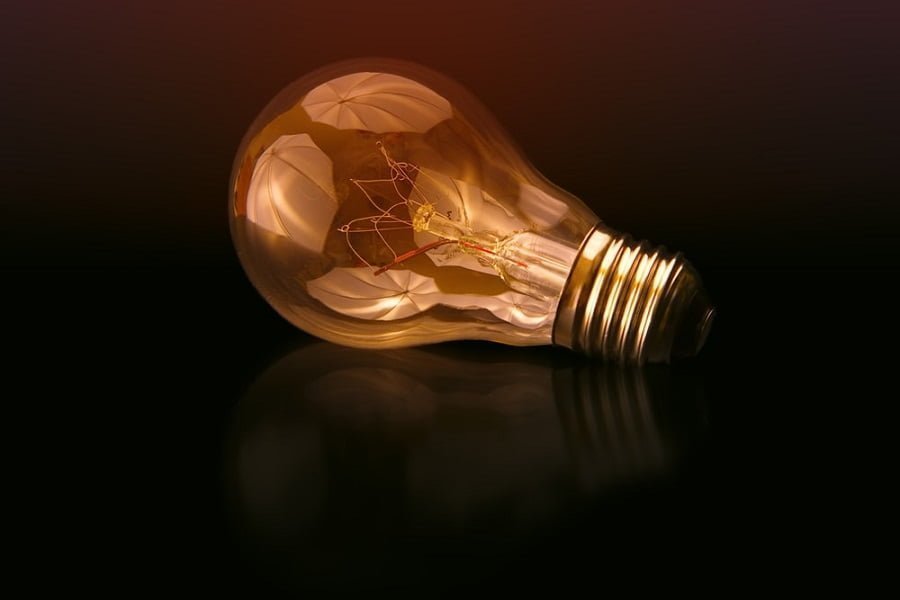
Incandescent bulbs are easy to throw away because you can put them with the regular trash. The bulbs contain a filament within the glass, however, so these bulbs aren’t suitable for glass recycling. For safety, you should place the bulb in a box or container to prevent glass breakage and injuries.
Incandescent bulbs are easy to break, and they could puncture the trash bag and injure sanitation collectors or even a member of your family when he or she carries out the trash. Safety just takes a little forethought to prevent injuries.
How to Dispose of Halogen Light Bulbs
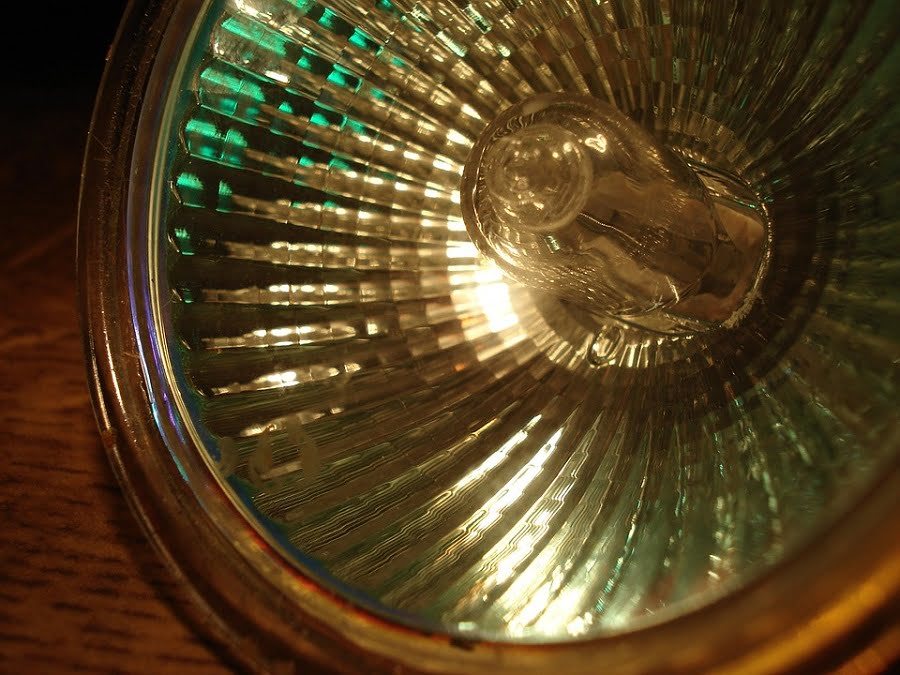
Halogen bulbs contain wire filaments in high-silica glass bulbs. The bulbs are sealed under pressure. The bulbs are less likely to break than incandescent bulbs, but it does happen. Fortunately, the bulbs don’t have any toxins, and you can dispose of them safely in household trash, secured in a cardboard package or container.
Like incandescent bulbs, glass recyclers can’t easily remove the wire filaments, so you shouldn’t recycle halogen bulbs with other glass.
Lowe’s Garbage Disposal
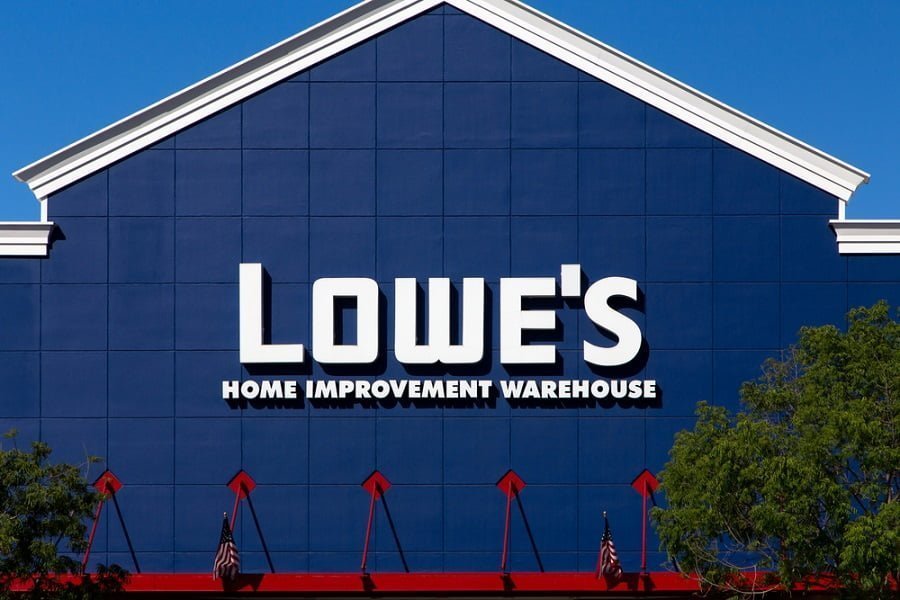
Lowe’s garbage disposal services and supplies make it easier to handle any kind of home cleaning and disposal job. You can find strong trash bags to prevent broken glass from puncturing the bags and safe ways to store fluorescents and CFBs until you can take them to a disposal center.
Home Depot Recycling Bins
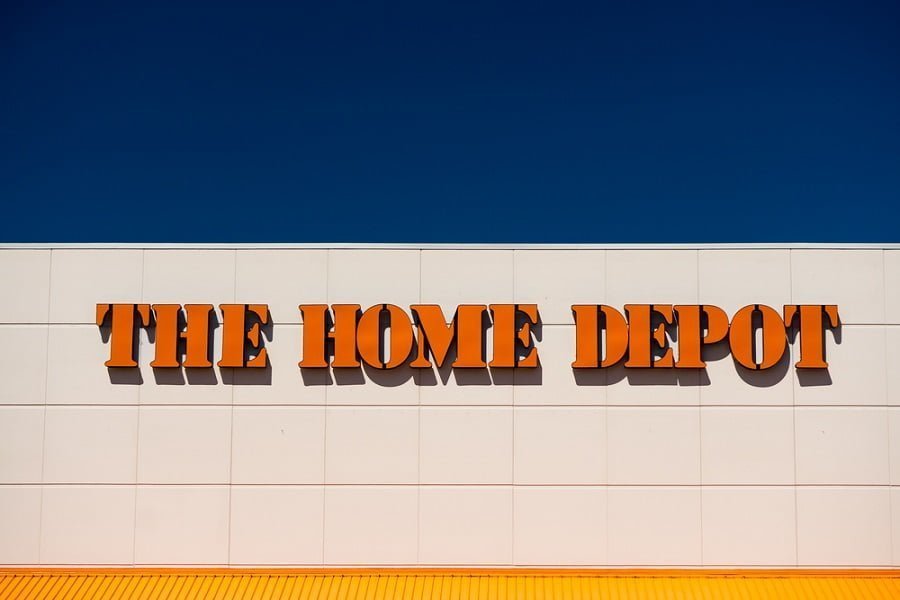
Home Depot operates a CFL recycling program because it’s dangerous to throw these used bulbs in the trash. The amount of mercury is minute, but any amount of mercury can still pose an environmental and health threat. The unbroken bulbs must be returned to the disposal center in a plastic bag.
The bulbs collected at the store are turned over to a third-party waste management company for recycling and disposal. The glass, aluminum, and mercury are recycled, and the only part not used is the phosphor powder.
Related reading:
Table of Contents